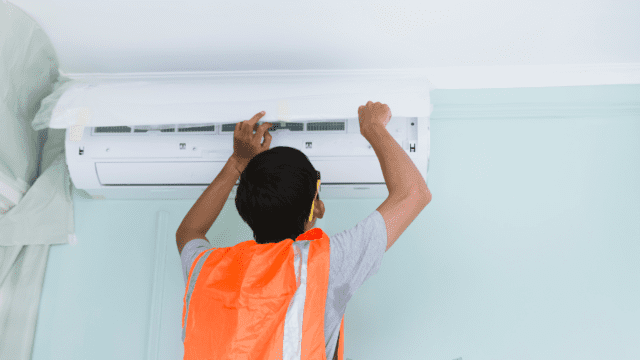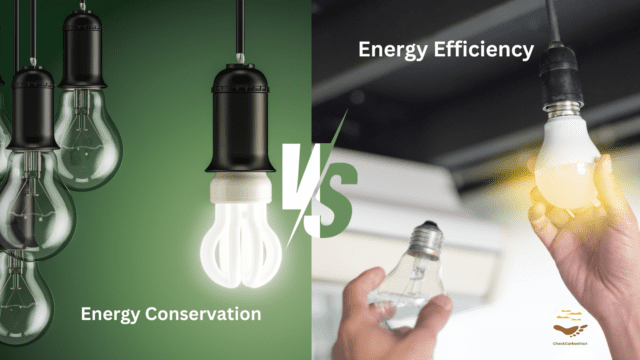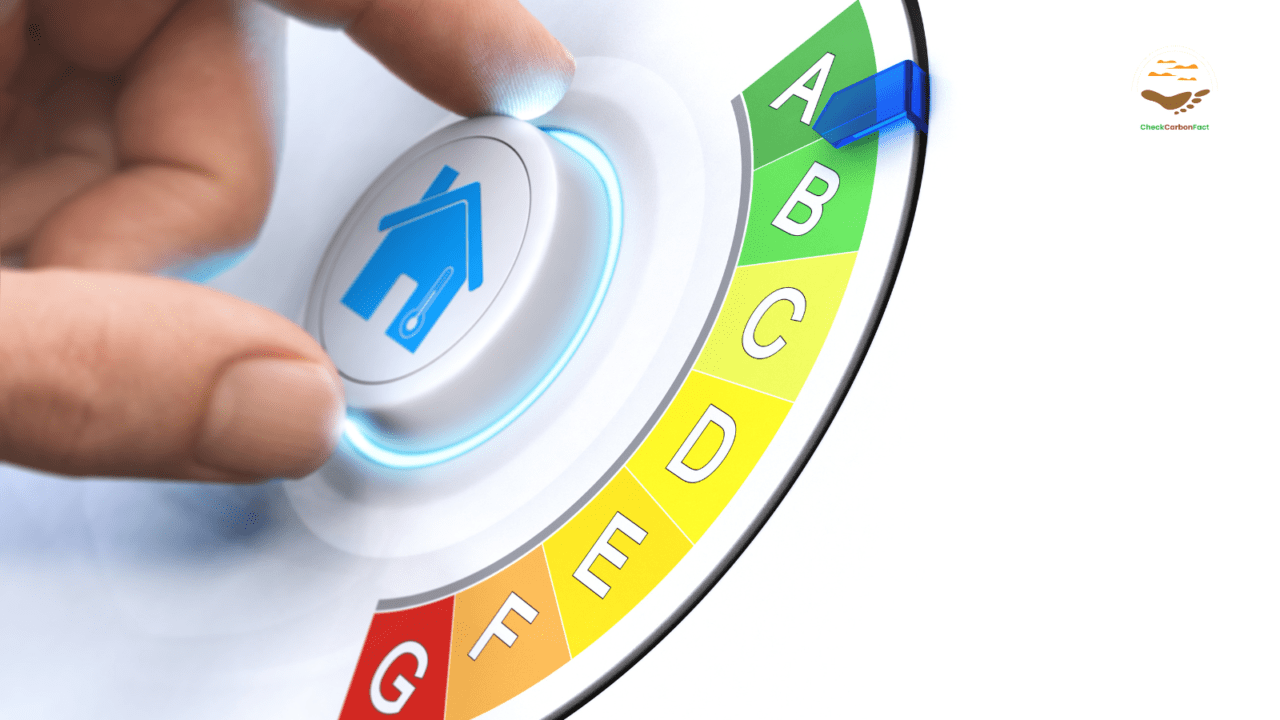With rising temperatures and increasing environmental concerns, people are shifting towards sustainable practices, and energy efficiency is at the forefront of this movement. This blog post explores the various dimensions of energy efficiency, ranging from its impact on energy security, to its role in addressing global challenges such as climate change. Importantly, the article will provide you with a clear distinction between energy efficiency and conservation, which are often used interchangeably.
Energy efficiency is a critical aspect of sustainable development. It involves achieving equal or better services with less energy consumption.
Understanding Energy Efficiency
At its core, energy efficiency involves delivering the same or improved services while consuming less energy. It’s essentially making the most out of available resources and minimizing waste. Whether it’s upgrading your home with renewable heating systems, installing solar panels, or participating in government initiatives like the Energy Company Obligation in the UK, energy efficiency projects aim to utilize renewable sources, reduce energy costs, and move towards a net-zero energy footprint.
This is often expressed as a percentage improvement, such as the example of a ductless air-conditioning heat pump system that uses half the energy of a standard air conditioner but provides the same or better cooling output, representing a 50 percent improvement in efficiency.
Energy efficiency can also be seen in terms of increased productivity, as seen in the example of factories installing efficient motors to reduce energy consumption by 35 percent while maintaining the same level of production.

Energy Efficiency vs. Energy Conservation
Energy efficiency and energy conservation are terms often used interchangeably, but they represent distinct approaches to managing energy resources. Understanding the differences between the two is crucial for developing effective strategies to address the challenges of resource depletion, environmental impact, and sustainable development.
Energy efficiency revolves around optimizing the use of energy to achieve the same or improved services. It’s about enhancing the performance of systems, appliances, and processes to reduce energy consumption without compromising the quality or quantity of services provided. For example, the implementation of energy-efficient technologies, such as the ductless air-conditioning heat pump system mentioned, allows for a significant reduction in energy usage while maintaining the same level of cooling output. Efficiency is quantified as a percentage improvement, showcasing the ability to achieve more with less.
On the other hand, energy conservation involves behavioural changes or practices that result in reduced energy consumption. This can include actions like turning off lights when not in use, adjusting thermostat settings, or using appliances more sparingly. While conservation measures contribute to short-term reductions in energy use, they often rely on individual behaviours that can be challenging to sustain over time.

Energy efficiency strategies offer a more sustainable and long-term solution. Unlike conservation, efficiency does not require a sacrifice in the level or quality of services. The examples provided illustrate how industries, through the adoption of efficient technologies, can maintain or enhance productivity while significantly reducing energy consumption. In essence, energy efficiency aligns with economic prosperity by lowering costs and promoting the same or better productivity.
Many energy efficiency programmes ultimately aim to change the market such that energy-efficient items are automatically chosen by consumers without the need for incentives. This entails introducing incentive programmes, spreading knowledge and awareness, and boosting the market share of energy-efficient goods.
The importance of distinguishing between energy efficiency and conservation lies in their implications for broader development goals. While both contribute to reducing overall energy demand, efficiency measures emerge as the more sustainable choice.
Why Energy Efficiency Matters
The global demand for energy is on the rise, leading to skyrocketing prices and an unsustainable strain on available resources. Fossil fuels, often chosen over renewable energy, contribute to greenhouse gas emissions, worsening the climate crisis. Energy efficiency offers a sustainable solution by reducing energy consumption, cutting electricity bills, and decreasing reliance on environmentally harmful practices.
Benefits of Energy Efficiency
Choosing energy-efficient appliances is a win-win situation. These appliances not only save money but also contribute to a substantial reduction in greenhouse gas emissions, and overall dependency on fossil fuels.
Specific benefits include:
- Cost Savings: Energy-efficient technologies and practices often lead to cost savings for both individuals and businesses. By using less energy, households can reduce their utility bills, and businesses can enhance their competitiveness by lowering production costs.
- Energy Security: Energy security is a critical concern, and energy efficiency measures can mitigate risks associated with the geopolitical concentration of energy resources. For instance, Ukraine’s focus on energy efficiency measures helped reduce its dependence on Russian gas during times of conflict. By decreasing energy consumption, countries can enhance both national and energy security.
- Energy Access: Access to affordable and reliable energy is a key driver of economic growth. Energy efficiency plays a crucial role in increasing access by reducing both demand and cost. Programs like Power Africa address energy access on multiple fronts, combining low-cost efficiency programs with reliability improvements and reducing the need for extensive generation investments.
- Job Creation: The transition to a more energy-efficient economy creates new job opportunities. Industries involved in developing and implementing energy-efficient technologies, such as renewable energy and smart grids, contribute to economic growth and employment.
- Affordability and Reliability of Energy: Energy efficiency contributes to the affordability and reliability of energy by reducing total energy demand and peak electricity demand. This, in turn, helps avoid power outages, enables better recovery of costs for utilities, and fosters economic growth. Investing in energy efficiency is cost-effective compared to adding new generation capacity, making it an attractive option for countries looking to keep energy prices lower.
- Environmental Impact: One of the primary reasons for promoting energy efficiency is its positive impact on the environment. For instance, most electricity-generating systems globally rely on fossil fuels, contributing to environmental degradation. However, energy efficiency helps mitigate this impact by reducing the need for resource-intensive processes and limiting the destruction of ecosystems. Moreover, energy-efficient technologies contribute to cleaner air and healthier environments, as demonstrated by states in the U.S. using efficiency measures to avoid tons of emissions and improve indoor air quality.
- Climate Change Mitigation: Energy efficiency is a powerful tool for mitigating climate change by reducing greenhouse gas emissions. It achieves this by lowering energy demand, making renewable energy systems more affordable, and being a cost-effective strategy with zero emissions. The International Energy Agency (IEA) emphasizes the significant role of energy efficiency in reducing emissions and limiting global temperature increases.
Let’s Promote Energy Efficiency in our Daily Life
As the world continues to grapple with environmental challenges, embracing energy efficiency becomes not only a necessity but a collective responsibility for a better and greener tomorrow. By using energy more wisely, we can reduce greenhouse gas emissions and mitigate climate change. But again, the myths must be dispelled. It’s important to note that promoting energy efficiency doesn’t always require significant investments. Simple, everyday actions, such as unplugging electronic devices not in use can contribute greatly to maximizing our energy usage.
Found it interesting and would like more in the mail?




